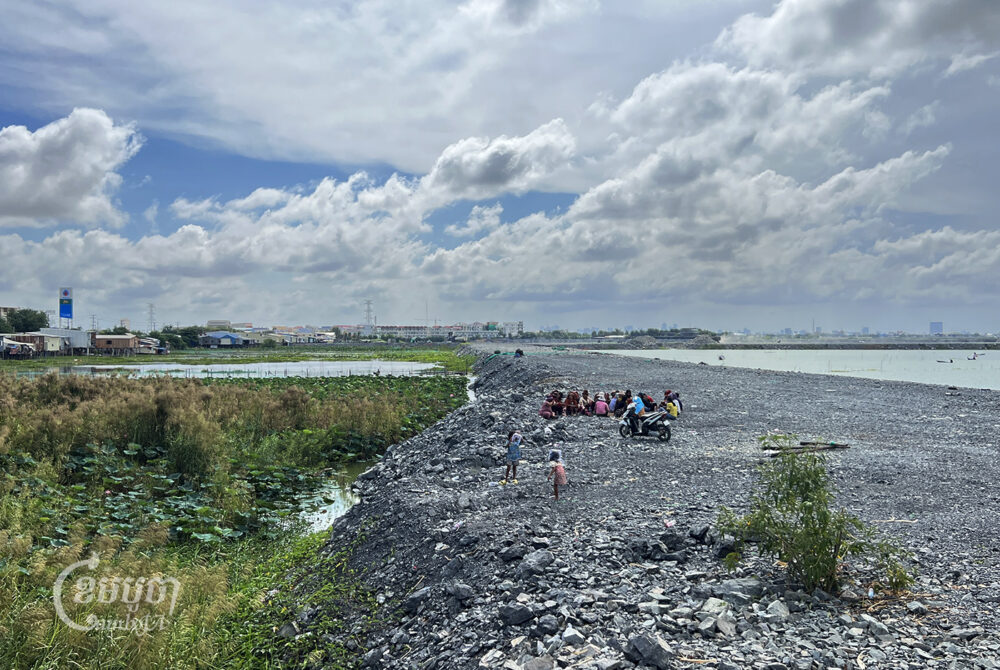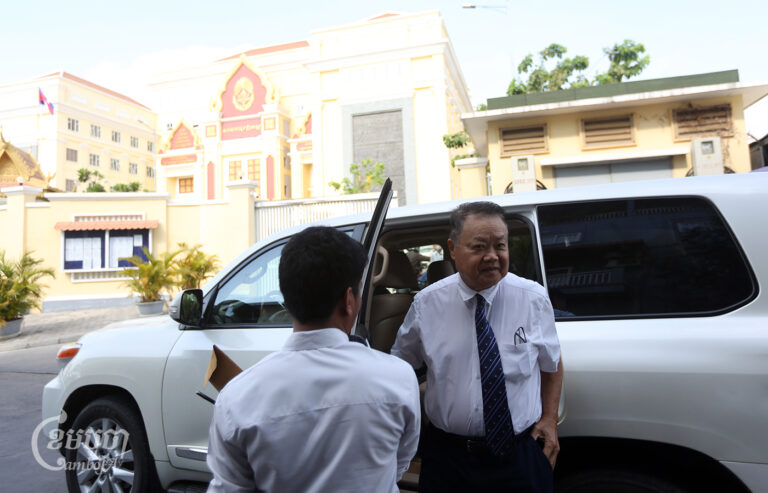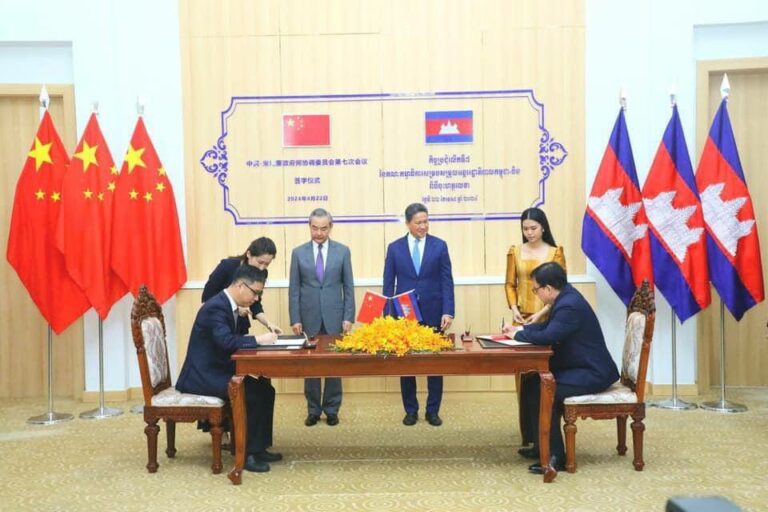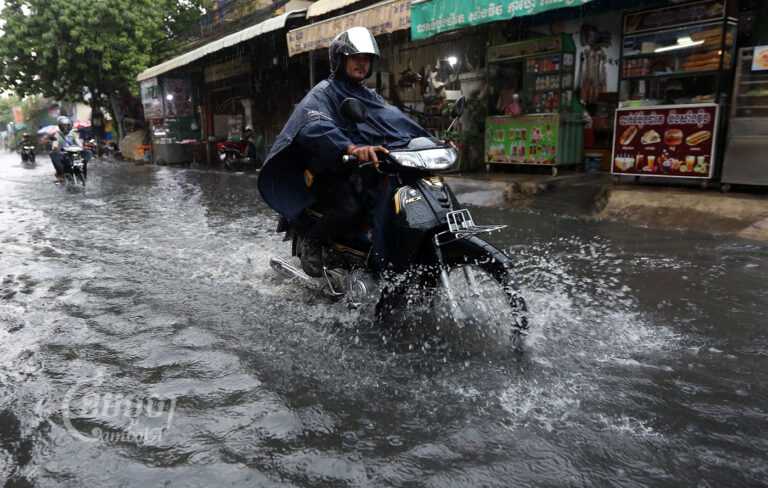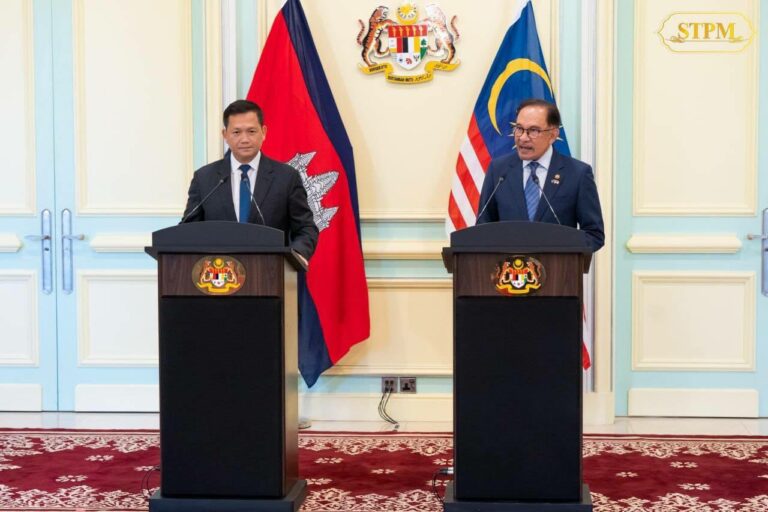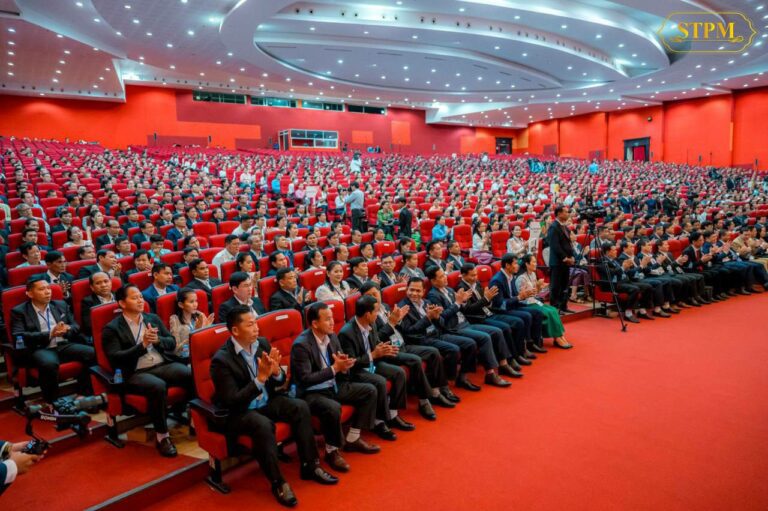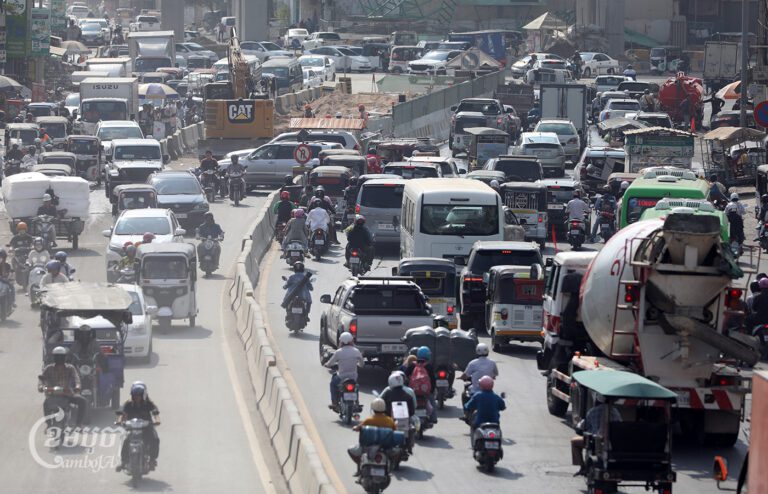Locals from some communities with ongoing land disputes are not optimistic about the government’s new out-of-court dispute resolution authority. Prime Minister Hun Manet announced last month that the government body could resolve civil matters more quickly than Cambodia’s courts, but land disputants are wary of a system carried out by local authorities they already don’t trust.
Sea Davy, a resident of Samrong Tboung village in Phnom Penh, is not confident that the new authority will be able to effectively resolve community disputes.
District guards have restricted her community from fishing and collecting vegetables in certain areas in Boeng Tamok lake; the officials also destroyed fishing nets, she said. Local activists are currently facing charges after clashes with district authorities.
“The new system lets the local authority solve [disputes]. But for my community, how can the local authorities provide us a solution when commune and district authorities are the ones who abuse us?” Davy said.
The Council of Ministers fully approved the draft royal decree establishing the National Authority for Out-of-Court Dispute Resolution last month and King Norodom Sihamoni signed the decree on November 2.
Prime Minister Hun Manet announced the formation of the new authority to the public on October 30 during a speech in Kampong Speu province. He said the authority will work to resolve “civil disputes,” “trade disputes” and “other disputes” through mediation, and agreements made through the resolution process will be considered final.
“I would like to emphasize that the establishment of this mechanism is not a mechanism to force you to participate. When there is a dispute, you have the option to go to court, to find an elder or someone to help resolve the issue, or to rely on this new authority,” he said. “It’s not forced, it is your choice.”
The prime minister said the new authority would help reduce congestion in the courts. But Oum Sophy, a representative of the Lor Peang community, doesn’t think the new authority will be much different from the court system, saying the two are “like father and son.” The land activist was convicted on an incitement charge in 2020 and handed a suspended sentence.
She said she has filed many civil petitions to the court and the Council of Ministers since 2012 regarding a long-running land dispute in Kampong Chhnang province, but has not had satisfactory resolutions come out of these efforts.
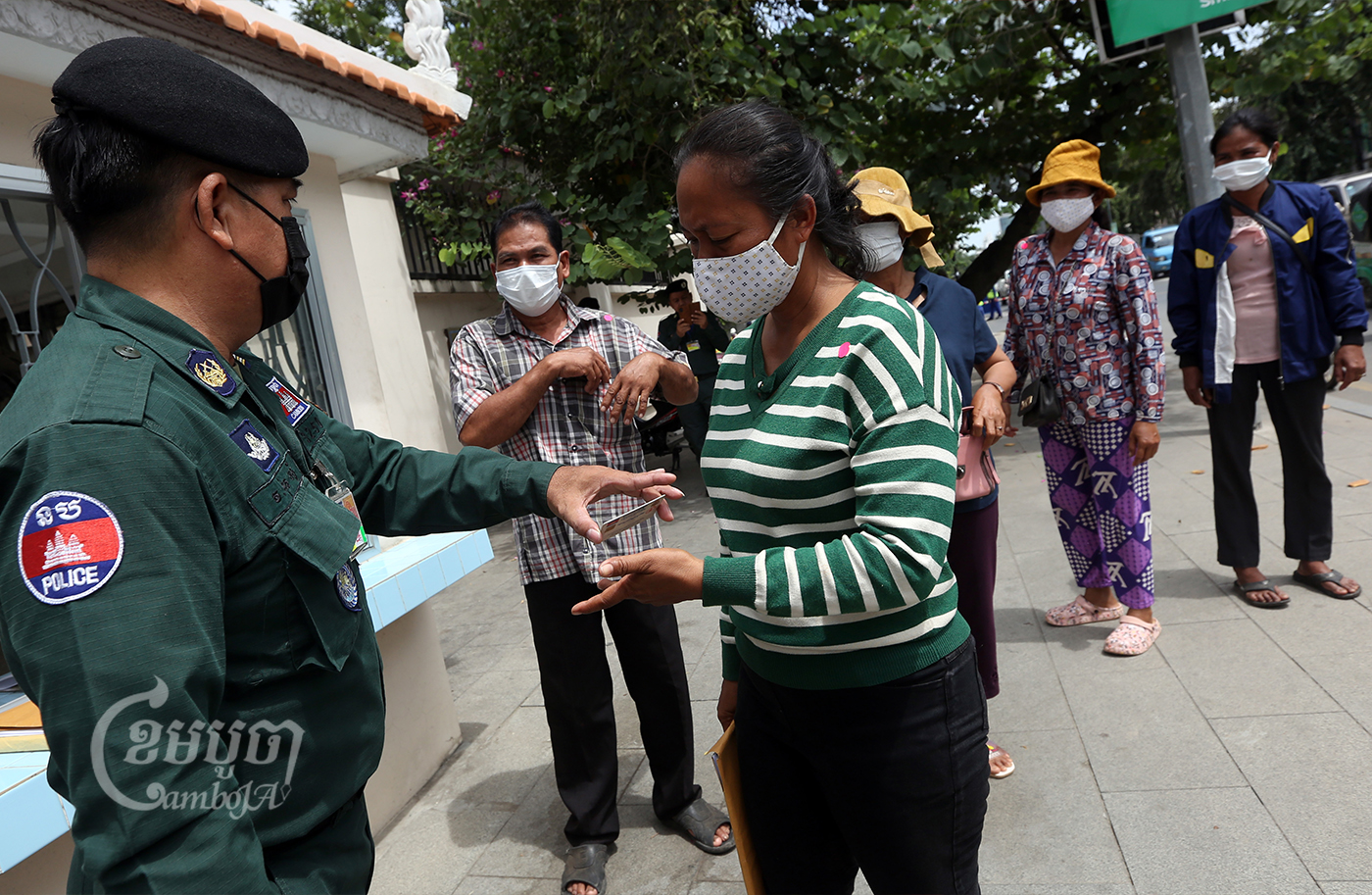
In the past, a high-level officer only believed what lower-level authorities told him about the land dispute between members of her community and the agribusiness company KDC, she said.
“[The high-level officer] refused to come down to the conflict site directly, believing only what his subordinates sent in a report,” she said. “I think that if our society still has this kind of leadership, we will still suffer and we will still not see a path [to solutions], not to mention a light of justice. That seems too far away for us.”
Instead of a new resolution authority, Sophy wishes Hun Manet would focus on replacing local authorities who have failed to provide residents with solutions in the past.
“We do not want to live in such a chronic situation because our lives are getting poorer as it is taking so long to come to a settlement,” Sophy said.
Phav Nhoeung, a representative of the 175 Community in Koh Kong province, said she does not have much faith that this new authority will provide her community with solutions based on her past experiences with local authorities. In June, Davy was detained by Koh Kong officials while attempting to deliver a petition advocating for local land rights.
“When we lose our land and go to file a petition, [local officials] do not try to help us with land disputes. They accuse us of incitement, they accuse us of violence, they accuse us of encroaching on other people’s land,” she said.
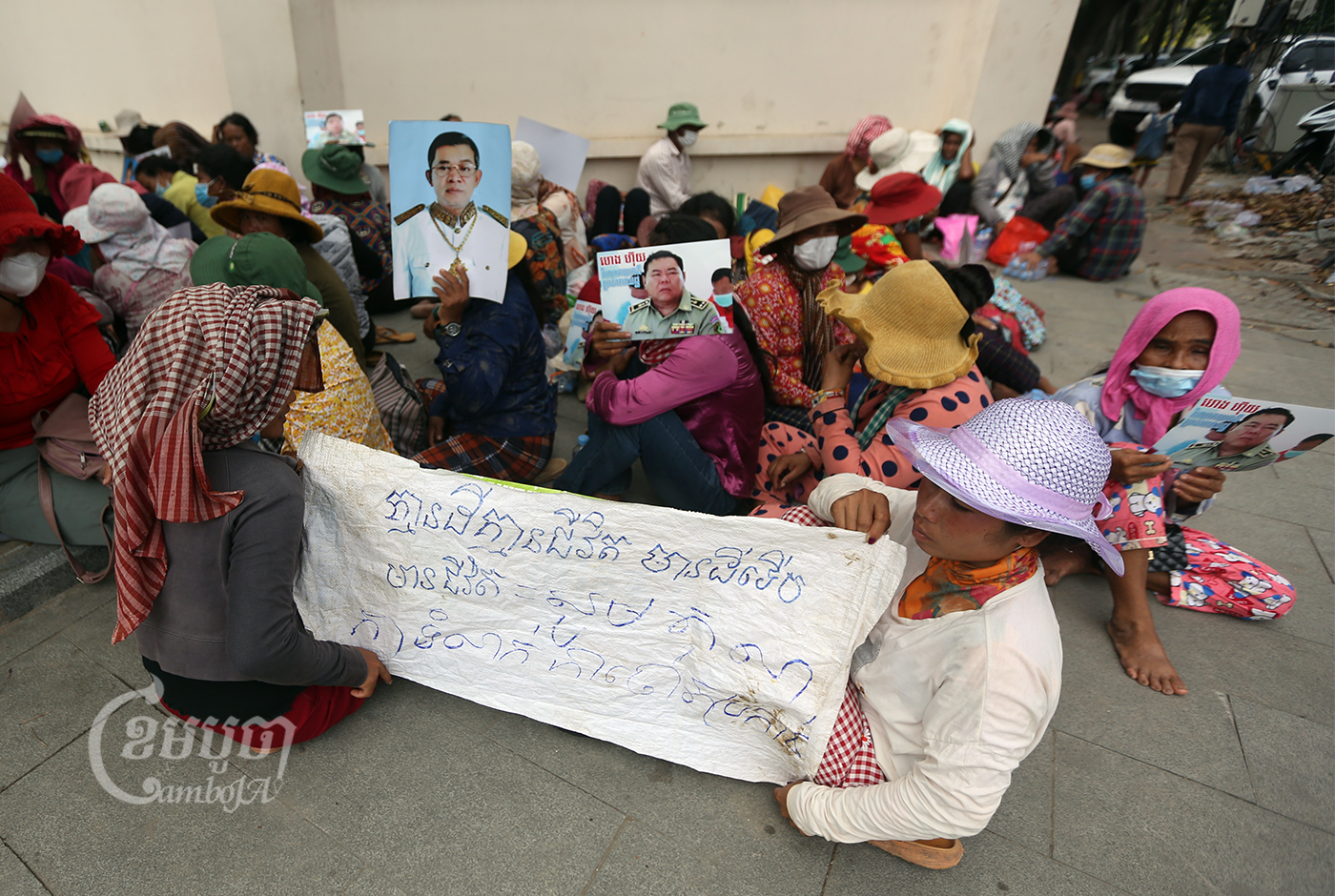
Am Sam Ath, operations manager with the NGO Licadho, said that part of the reason Cambodian courts have such a large backlog is because people did not want to use existing mediation processes.
“In the past, because they did not trust the mediation of local authorities, that led them to choose the courts,” he said.
He added that the government should provide the public with more clarity on what issues can and cannot be resolved out of court, and make sure that those in charge of carrying out the new system are skilled and trained in the legal framework.
Soeng Senkaruna, a senior investigator at human rights group Adhoc, said officials with the new authority must dare to bring about justice for victims without fear of the wealthy and powerful if they want to gain the trust of the public.
“If the disputes that arise in relation to those who are powerful or politically connected are not dealt with justly, [this authority] will be no different from the criticisms voiced by people [land disputants].”
According to government spokesman Pen Bona, this new system will address any civil issues including ongoing conflicts such as land disputes.
“No matter what, as long as our brothers and sisters have a dispute that they need to mediate and resolve, they can use this mechanism,”
Bona stated. Bona said the government plans to spread awareness of the system’s procedures and how to file a petition with local officials once the authority is operational, but said those plans are still in process.


